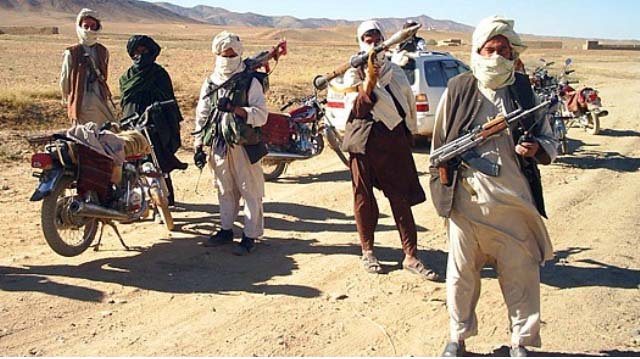There has been a sharp increase in kidnapping of civilians by Taliban militants in recent weeks. Late last month, militants apparently loyal to the Taliban abducted around 200 passengers traveling from Kabul to northern Badakhshan and Takhar provinces. Most of the passengers were soon released, but the kidnappers have killed around 20 of the abductees. Some of the kidnapped passengers still remain in captivity with their fates being unknown. There are reports of ongoing efforts by Afghan security forces and local influential tribesmen along with government and High Peace Council officials to secure release of the rest of the abductees. The incident came as the worst amid a spate of attacks against civilian vehicles travelling on the insecure highways, underscoring a worsening security situation after the Taliban appointed a new leader last month. Shortly after the kidnapping in Kunduz, 17 passengers were kidnapped in Sar-e Pul province and safely released later.
The sharp increase in the kidnapping of passengers – mainly civilians – traveling through highways indicates an apparent shift in the trend of kidnappings that are carried out by the militant groups in Afghanistan. Government officials accused the Taliban for the kidnapping in Kunduz. The Taliban have not denied having role in the recent incidents, though the group usually rejects being involved in kidnapping civilians. The kidnapping in Kunduz was one of the rare instances of mass abduction of civilian passengers carried out by the Taliban. When announcing start of the group’s spring offensive, the Taliban threatened to target Afghan security forces, key government offices and public installations, foreign forces as well as government officials and those serving the administration. Also in the previous years the Taliban used to stop and check vehicles on highways for government employees and members of Afghan security forces.
However, the fact of the kidnapping in Kunduz is perhaps the first of its kind and scale that is committed by the Taliban is quite worrying. The situation is becoming more dangerous for people who are somehow affiliated to government and public agencies like employees, public servants and security forces as well as those working for NGOs. According to local officials and the released passengers the Taliban searched for people having affiliations with the government – members of security forces and government employees. The mass abduction by Taliban is a sign of growing insecurity and further intensification of the situation across the country as the Taliban are attempting to escalate the war against the government after the group named a new leader following the death of its leader Mullah Mansoor.
It could also be a sign of a shifting approach within the Taliban in targeting anyone being linked with public sector and government institutions. The new Taliban leader is said to be a hardliner among the Taliban senior leaders who most likely will try to escalate the ongoing war in Afghanistan. He was responsible for issuing religious fatwas for the Taliban before he came to the leadership of the Taliban. Considering his background, the new Taliban leader is expected to issue or may have already issued fatwas as guidelines for the Taliban field commanders and ground fighters to use more unconventional methods in targeting people serving the Afghan government. This would further result to erosion of the commitment of the parties of the war to safety and protection of the civilian population.
But the tactics the Taliban use in targeting people matter significantly when it comes to the group’s war approach as well as its commitment to safety and protection of the civilian population and abiding by war-time regulations. If the Taliban choose to use kidnapping as a mean of war, it would mean that the group is gradually being degraded into a petty criminal group not concerned of public sentiments. In the last year’s trend of kidnapping in Zabul and Ghazni provinces targeting mostly Hazara passengers, the Taliban largely avoided of being dragged into feuds and animosity that had roots in inter-ethnic hostilities coming into the surface by emergence of militant groups like Islamic Movement of Uzbekistan and the Islamic State who bear anti-Shia sentiments. The Taliban still have been responsible for searching and killing passengers thought of being government employees or members of Afghan security personnel.
But the change of Taliban leadership this year may mean change of war approach and tactics by the group that include focusing on kidnapping civilian vehicles. The Taliban have been responsible for deaths of many civilians kidnapped on suspicion of working for the government or foreigners. Also many civilians are killed by road-side mines planted by the Taliban. Though the Taliban formally maintain that the group is committed to protect civilian, but it has consistently used civilians as human shield and caused danger to civilians by operating in civilian-populated areas. The Taliban leadership has a loose control over the group’s field commanders and fighters, which further leaves the ground fighters to commit atrocities against civilians. The Taliban along with other militants are by far committing more atrocities to civilians than any other parties in the war. The United Nations attribute between 70 to 80 percent of civilian deaths to the Taliban and other militant groups.
It is time for the Taliban to be taken accountable for the pains and suffers they cause for civilians in Afghanistan. The Afghan government needs to ask the international community and the United Nations to pressurize the Taliban leadership to end deliberately targeting civilians in Afghanistan. The Taliban must demonstrate that it is committed to war-time regulations particularly to safety of non-combatants and civilians. The government of Afghanistan also needs to take concrete measures to secure the highways across the country where civilian vehicles are frequently stopped and searched by the Taliban and other militant groups.
Home » Opinion » The Worrisome Rise of Kidnapping Civilians
The Worrisome Rise of Kidnapping Civilians
| Abdul Ahad Bahrami

